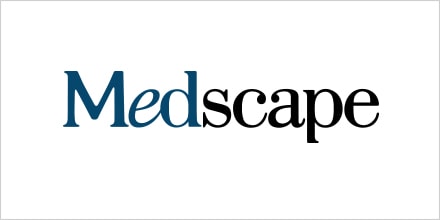NEW YORK (Reuters Health) – Adding ramucirumab to paclitaxel as second-line therapy for advanced gastric cancer boosts progression-free survival (PFS) in East Asian patients, the RAINBOW-Asia trial shows.
Overall survival was not significantly increased with ramucirumab (Cyramza, Eli Lilly and Co.), however, researchers report in The Lancet Gastroenterology & Hepatology.
RAINBOW-Asia, which included primarily Chinese patients, was a bridging study with a design similar to that of the global phase-3 RAINBOW study from 2014. In RAINBOW, ramucirumab plus paclitaxel significantly improved overall survival compared with placebo plus paclitaxel in patients with advanced gastric or gastro-esophageal junction (GEJ) adenocarcinoma.
Dr. Lin Shen of Peking University Cancer Hospital & Institute, in Beijing, and colleagues stress that the goal of RAINBOW-Asia was not “to show statistical superiority of treatment with ramucirumab plus paclitaxel over placebo plus paclitaxel.”
RAINBOW-Asia, they add, “provides evidence that ramucirumab plus paclitaxel might be a treatment option for Chinese patients with advanced gastric or GEJ adenocarcinoma in the second-line setting.”
On behalf of Dr. Shen, Eli Lilly and Co. (China) communication manager Junjun Liu told Reuters Health by email, “No second-line therapy has been approved for advanced gastric cancer in China. The development of novel therapeutic options for Chinese patients with advanced gastric cancer is therefore urgently needed.”
Not only is gastric cancer a common malignancy worldwide, but about 60% of cases occur in East Asia, which also has the highest estimated mortality rates from gastric cancer. China alone accounts for about 44% of gastric-cancer cases globally and nearly half of all deaths from the disease.
Ramucirumab is a humanized monoclonal antibody that targets the extracellular domain of the vascular endothelial growth factor (VEGF) receptor-2, inhibiting the binding of VEGF-A, VEGF-C and VEGF-D ligands.
RAINBOW-Asia was a placebo-controlled, double-blind study that enrolled adult patients with advanced gastric or GEJ adenocarcinoma at 32 centers in China, Malaysia, the Philippines and Thailand.
The 440 participants (median age, 57; 68% male; 89% Chinese) were randomized 2:1 to receive ramucirumab plus paclitaxel or placebo plus paclitaxel.
Ramucirumab 8 mg/kg or placebo was given intravenously on days 1 and 15 of every 28-day cycle, along with paclitaxel 80 mg/m2 intravenously on days 1, 8, and 15.
After a median follow-up of eight months, 363 patients had died. Median PFS was 4.14 months in the ramucirumab group versus 3.15 months in the placebo group (P<0.02).
Median overall survival was 8.71 versus 7.92 months, respectively (P=0.74). In the original RAINBOW study, adding ramucirumab to paclitaxel increased median overall survival by 2.2 months.
The authors noted that the higher rates of post-discontinuation systemic therapy (most commonly chemotherapy, anti-angiogenesis therapy, and immunotherapy) and relatively long survival in the RAINBOW study compared to RAINBOW-Asia “could have diluted any potential survival benefit associated with ramucirumab.”
In an accompanying editorial, Dr. Harry H. Yoon of Mayo Clinic, in Rochester, Minnesota, points out that, as a bridging study, RAINBOW-Asia’s “threshold for success was not high,” and added, “whether the effect of ramucirumab was clinically meaningful is questionable.”
He agreed with the possibility that post-discontinuation therapies could have influenced overall survival and added, “There is no strong evidence to indicate that anti-angiogenesis inhibition is less efficacious in patients in China compared with elsewhere.”
RAINBOW-Asia was funded by Eli Lilly and Co., and two of the 17 co-authors are Lilly employees.
SOURCE: https://bit.ly/3pkQ6w3 The Lancet Gastroenterology & Hepatology, online October 6, 2021.

